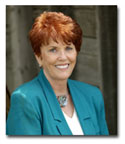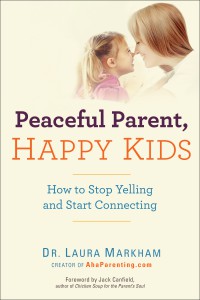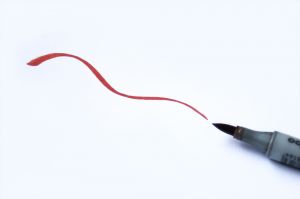By Kelly Bartlett, author of Encouraging Words for Kids, API Leader and Certified Positive Discipline Educator, www.kellybartlett.net.
After infancy comes the age of autonomy. It’s a time when a child’s physical activity takes off, language flourishes and parents hear frequent exclamations of, “Me do it!” During this time, our kids’ personalities blossom, and we start to experience the full range of their spirit. After infancy, positive discipline can become a natural extension of Attachment Parenting, as it is about providing limits for behavior while respecting a child’s needs and natural temperament. Just as close contact strengthens the parent-child relationship in infancy, positive discipline preserves that relationship throughout childhood.
However, discipline can also challenge the parent-child relationship, especially when a child is very spirited in nature. When kids are very active or react strongly to disappointment, positive discipline tools can be difficult to put into place. Many parents get frustrated with their child’s seeming lack of response to a non-punitive discipline style and are often at a loss as to how to discipline such exuberance.
 Dr. Jane Nelsen is the author of Positive Discipline and founder of the Positive Discipline Association. She trains parents, teachers and caregivers all over the world to use positive discipline to strengthen parent-child relationships and to teach children how to become responsible, respectful and self-reliant. I had the opportunity to speak with Jane about her thoughts on responding to strong emotions when it comes to positive discipline and spirited kids.
Dr. Jane Nelsen is the author of Positive Discipline and founder of the Positive Discipline Association. She trains parents, teachers and caregivers all over the world to use positive discipline to strengthen parent-child relationships and to teach children how to become responsible, respectful and self-reliant. I had the opportunity to speak with Jane about her thoughts on responding to strong emotions when it comes to positive discipline and spirited kids.
KELLY: As you know, children who are described as “spirited” are typically very active, very verbal, highly emotional or some combination of all three. I’ve often heard from parents of spirited children that using positive discipline can be a challenge because their kids’ personalities are naturally so strong-willed. What do you think? Is there a place for positive discipline in families of strong-willed, “spirited” children?
JANE: I think using positive discipline is even more important with spirited children because you need to guide that strong will they have. As children grow out of infancy, they want—they need—to use their power, whether we like it or not. And they’re good at it! Celebrate that you have a spirited child and then take a lot of opportunity to guide that child into using that strong will in contributing ways.
KELLY: How do we do that with spirited kids?
JANE: One of the foundations of positive discipline is to be kind and firm at the same time. Many parents know how to be kind … until they get upset. Then they know how to be firm without being kind, and they vacillate between the two: being kind until they can’t stand their kids (who develop an entitlement attitude) and then being firm until they can’t stand themselves (feeling like tyrants).
I think we all know the mistakes made in the name of firmness without kindness: punishment. However, many do not know the mistakes made in the name of kindness without firmness: pleasing, rescuing, over-protecting, pampering (providing all “wants”), micromanaging in the name of love, overdoing choices, and making sure children never suffer.
KELLY: When you say “never suffer,” what do you mean?
JANE: I often say we should allow our kids to suffer. Not make them suffer—we should never do that. But we need to allow them to suffer such that they can have their feelings.
KELLY: You’re saying when our kids are expressing their unpleasant emotions we shouldn’t console those feelings away?
JANE: Right. Parents shouldn’t worry about not being attached if their children ever have to cry. I think it is impossible for any child who is being raised by a parent who is interested in Attachment Parenting to not be attached. It’s not possible; they’re in tune with meeting their child’s needs.
But being too focused on keeping a child happy can lead a parent to constantly (unintentionally) rescue a child from his feelings. The child then develops the belief of, “I’m not capable of dealing with these feelings.”
They should have their feelings and be allowed to work them through. And when they do—which they will eventually—they will feel a sense of. A sense of, “I am capable.” A sense of, “I am resilient.” A sense of, “I can survive.” All children need that opportunity.
KELLY: It seems hard to know when to offer comfort and ease strong feelings and when to trust kids to work through them on their own.
JANE: I think parents get confused between the needs and the wants. There’s a fine line between understanding when it’s appropriate to comfort your children and when to let them work through their feelings on their own and realize their own capabilities for handling them. I just think that’s a grey area for a lot of parents.
KELLY: So where is that balance? How do we know what is an appropriate response?
JANE: A lot of it is education. If you have the knowledge, then you go into your heart and you know. Parents need to understand that children are always making decisions based on their life experiences. They are answering for themselves, “Am I capable? Am I not capable? Can I survive the ups and downs of life, or can I not?”
If parents don’t allow their children to have those experiences of emotional upsets, they rob their children of developing the belief that he or she is capable. What we want to do is give our children experiences that help them develop healthy beliefs and a sense of trust, autonomy and initiative. Children need to develop their disappointment muscles, their capability muscles and their resiliency muscles. Wise parents allow children to do that.
KELLY: So it is possible for firmness, kindness, strong will and attachment to co-exist? No matter how spirited our children are (or their responses to discipline), we can set boundaries with kindness, let kids have their feelings about them, and still maintain a secure attachment?
JANE: Yes. And I think this is what parents of highly-spirited kids need to know. Sometimes it’s really hard to be firm without being punitive. And also, it’s easy to be permissive when your kids are strong-willed and you’re worried about maintaining attachment.
You know, I used to be permissive with my kids until I couldn’t stand them. Then I would be controlling and punitive until I couldn’t stand myself. So I’d be pampering and punitive because I didn’t know there was something in between. There’s a balance. A great example is saying, “I love you, and the answer is no.” Kind and firm. Then let kids have their feelings.
KELLY: And parents should still be there, too, “on the sidelines” so to speak?
JANE: Exactly. Children need to be able to manage their feelings when there’s a loving, supporting advocacy–that’s the benefit of Attachment Parenting. You’re providing that energy of support, that validation and foundation for allowing children to use what they’re learning.
For more articles about “spirited” kids, be sure to read the latest issue of Attached Family magazine, the Loving Uniquely issue, available for free download here!

 “Grant me the serenity to accept the things I cannot change; courage to change the things I can; and wisdom to know the difference.”
“Grant me the serenity to accept the things I cannot change; courage to change the things I can; and wisdom to know the difference.”